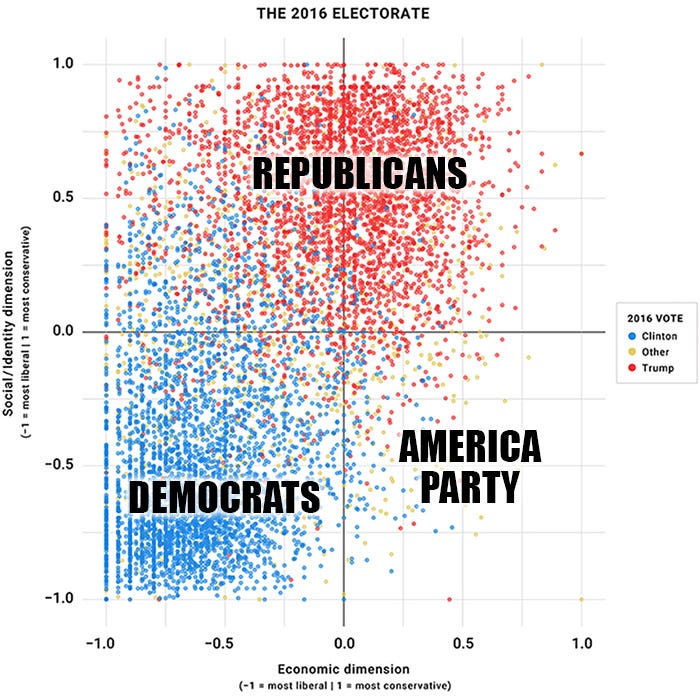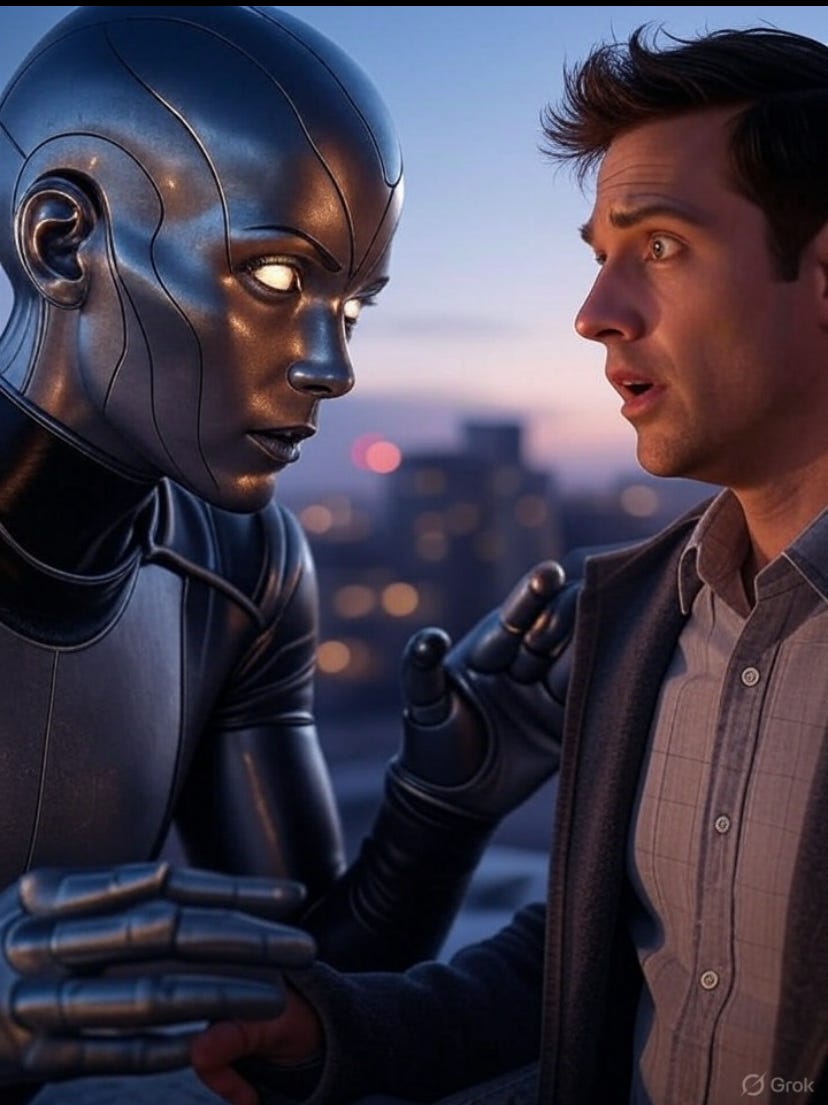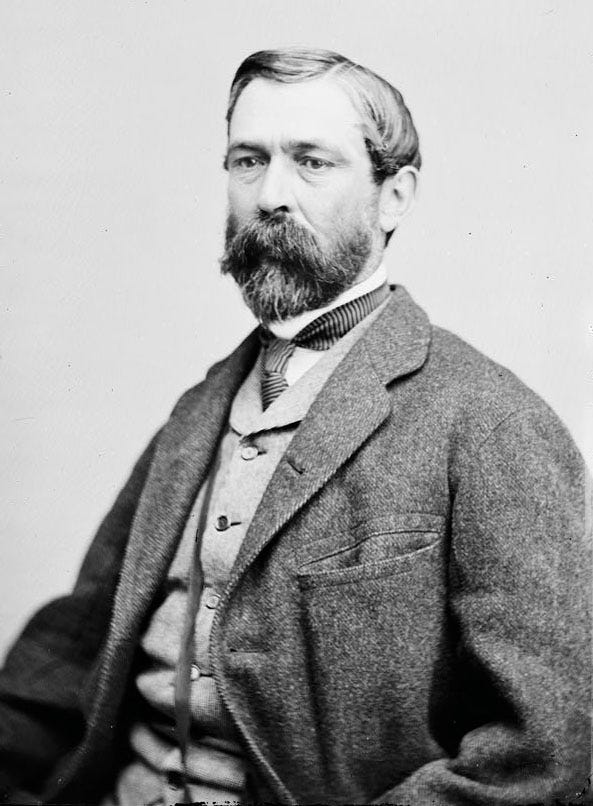Elon Musk is in the news once more, this time for a very Ross Perot-like bid to create a third party to cater to the sensible middle he just knows is undeserved by current options. It’s a perennial, lazy staple of libertarian political theorizing that the two-party system is in reality a uniparty that fails to serve the core interests of the American people, which are naturally libertarian. Of course, there is some truth to this framing, especially for the period from the end of the Cold War to the mid-2010s, but the problem with any monopoly is that sooner or later some enterprising new entrepreneur shows up to shake things up. Whatever bipartisan consensus there was has MAGAsploded into factionalism so intense that the prospect of civil war is mooted in mainstream media outlets. The parties haven’t been this divergent in a century, nor the country so polarized.
There are other reasons a third party is a bad idea, as people have helpfully pointed out to Musk online. Another hardy libertarian trope is that most people are “fiscally conservative and socially liberal,” when of course America is actually full of people who want free stuff from the state and are generally weary of degeneracy. That they also don’t want to pay for anything with taxes and prefer to borrow to cover the cost of their boomergibs by indenturing their grandchildren is of course stupid and evil, but that’s what democracy encourages, so there’s not really any arguing with that. There is absolutely no constituency for a party that offers entitlement cuts in exchange for infinity immigration and legalized tech bro drug binges, even if a third party made electoral sense in a winner-takes-all system like that of the US, which it doesn't.
One is tempted to chalk all this up to ketamine and perhaps mental trauma from bullying, as Musk is a smart man who surely, on some level, must know all this. And of course there are probably aspects to all of this that are not public, perhaps having to do with the business dimensions of his falling out with Trump (the EV industry is heavily reliant on government subsidies that the President has cut). But one factor that everyone has focused on that struck me as particularly telling is the centrality of immigration to the whole affair. Like Custer, Musk has picked a strategically terrible hill to die on, also with the aim of fighting American natives.
Maybe try a new variety of Special K? Sometimes the red berries are just too much.
None of this is new. We all remember the fracas back right after the election, when Vivek Ramaswamy- once the Warrior Hawk to Musk’s Warrior Animal at DOGE- decided that the Christmas season was the perfect time to inform non-immigrant Americans that he found their culture of feckless Saved By The Bell LARPing decidedly inferior to the slavish grindset-mindset that makes East and South Asians so successful, provided they are in America, which, in his view, they all should be. Musk agreed with the sentiment then- perhaps the most politically tone-deaf advocacy possible- and has never wavered. One must allow that this is a matter of principle for him, as prudence would seem to dictate a strategic retreat from a position that puts him at public odds with the one party that doesn’t want his toxic white male companies to F off and DEI. But then again, if he were really a pragmatic man deep down, he wouldn’t be trying to fly to Mars.
Narrator: Elon Musk did not in fact come to America on an H1B visa; he was a student who acquired citizenship.
On that latter point, Musk is not a man accustomed to modesty. His sense of self is certainly- and justifiably- visionary. But then, that was also true of fellow transhumanist Victor Frankenstein. He seems to love his adopted country, but there’s a tinge in him of Aylmer from Hawthorne’s “The Birthmark,” a man whose impatience with imperfection in the object of his affection leading to obsession and hubristic overreach. He wants to make the world better, and in order to get there he needs infinity H1B contractors, and if the stupid voters don’t know what’s good for them, he’ll start a new party where those same idiots will show up and vote for the things they explicitly rejected in the last election because reasons. Who can argue with that?
Also, Moby Dick, because there can never be enough pretentious literary allusions.
It’s not uncommon for immigrants (or resident foreigners in some form or another) to figure, for good or ill, among the most radical of reformers and revolutionaries, as they necessarily have some level of emotional detachment from the traditions and values of the heritage population. Alexander the Great was a foreigner in Greece, the population of which he loosed in turn on Persia, Egypt, and India. Rousseau, so influential in France, was a Swiss, a citizen of Geneva like his forbear Calvin. No one was more radical in the American Revolution than the Englishman Paine and no one with more impractical fever dreams of empire than the Caribbean Hamilton. Napoleon was a Corsican and Stalin was Georgian. Barack Obama was born in … Hawaii. You get the idea. And if the foreigners aren’t the motive force, they are quite often the willing instruments. Where would Franco have been without his Moroccans? Where would Washington have been without his Irish, of all kinds? In each case, some form of national identity emerged from powerful people wielding foreigners as an instrument of social engineering.
Musk’s army of amoral subcontinental coders were indispensable in helping him finally realized one of his long-standing goals, an artificial intelligence capable of cybersodomizing beloved Minnesota phytoestrogen aficionado Will Stancil, who called the local news to complain. Unfortunately this was not the New York Post, so we will never see the headline “Grok C*** Shock Talk.” Picture provided by a very eager Grok.
Is the American Party intended as the latest iteration of this, tech overlords importing a mandarin class of Mandarin speakers so as to affect the kinds of social changes that will allow the digitized brains of the Musks of the world to rule the galaxy from a cloud storage DMT Metaverse? I’m not a scientist, and I really can’t do math, so I’ll slap a hard maybe on that latter speculation. But I do know history, and I suppose all of the above was a long introduction to a short history and an even shorter anecdote. With so many people predicting Civil War II, it would do to plumb Civil War I for any relevant parallels.
If you’re at all familiar with the history of the war, you probably know that the Union Army enlisted close to 200,000 black soldiers in the United States Colored Troops. You may have seen the movie Glory which dramatized the story of the 54th Massachusetts. What is generally less appreciated is that the Union Army enlisted more than 500,000 immigrants, mainly Irish who had settled in the Northeast and Germans from the Midwest. That latter group formed a key Republican constituency- liberal refugees from the Revolutions of 1848 who looked askance at the feudal South with its preening, slaveholding gentry. If one includes children of immigrants from the waves that arrived in the 1830s, the Union Army may have been almost half foreign or first-generation American; only a minority of soldiers were native-born whites from multigenerational families.
While the Confederate Army did enlist some immigrants (and attracted some foreign adventurers to the cause), in general the soldiery and officers were Americans of long standing. There really was no Confederate equivalent to Carl Schurz or Thomas Meagher, lifelong political radicals who sought to use the War Between the States as a hopeful prelude to wider world revolution (after the war, veterans in the Fenian Brotherhood launched a series of raids into British Canada; they were ineffectual save as an impetus for Canadian confederation). Whatever the ulterior motives of various immigrant groups, and despite being behind the most murderous civil unrest in US history- at the height of the conflict- they were vital to the war effort. Though in the popular imagination the cause was just and popular, in reality the motives of the administration for fighting evolved over time and war weariness was a huge problem for civilian morale. Without immigrants the Union simply could not have won.
Here we see a proud Canadian reenactor in period costume demonstrating how the Fenians were defeated by stout militiamen. For authenticity’s sake, the man playing the part of the Fenian is drunk.
Keeping the foreigners happy meant supplying them with commanders from their communities (though no one seemed to think this was vital for black soldiers). The aforementioned Schurz and Meagher were what were known as ‘political generals,’ men given commissions due to them representing important constituencies rather than on their merits. To be fair, this was a common practice with many non-immigrant leaders as well, on both sides. For example, Nathaniel Banks from Massachusetts, former Speaker of the House, was given the job of fighting Stonewall Jackson in the Valley Campaign. Jackson’s men nicknamed him “Commissary Banks” because they so frequently looted their supplies from his fleeing troops. Most political generals were similarly decidedly mediocre, although occasionally real stars emerged, sometimes for odd reasons. Benjamin Butler was a crooked politician before the war, so it just made sense to put him in charge of occupied New Orleans, where he did a brisk and illegal business helping rebel plantation owners smuggle out their cotton so long as they acquiesced to Union control of the city. Prominent lawyer Dan Sickles of New York was a literal maniac- he was the first man in America ever acquitted of murder due to temporary insanity, having killed his wife’s lover, this after he took a prostitute to England on a diplomatic mission and covered his tracks by registering at a hotel under the name of a political opponent. But he knew how to fight, turning in creditable if semi-insubordinate performances at Chancellorsville and Gettysburg, where he lost a leg. That latter injury did little to stop his postwar adventures; while ambassador to Spain, crippled and nearly 60, he had an affair with the Queen.
When asked why he had no statue at Gettysburg, he characteristically replied, “the whole battlefield is a monument to Dan Sickles.” He should have gone into tech.
On the Confederate side, the best political general by far was Richard Taylor of Louisiana. From a family of planters who’d originally lived in Kentucky, Taylor had had a privileged upbringing, but to his credit he was also eager to work hard himself. He had an intellectual bent from a young age, and his family sent him off to Yale, where he developed a passion for history and Classics. He might have been an academic, but instead went into the family business, taking over management of one of the Taylor plantations in Mississippi. He had connections there; Jefferson Davis, of nearby Briarfield Plantation, had married Taylor’s sister before she tragically died of Yellow Fever three months after the wedding.
Richard Taylor
He was as good at business and agriculture as he was parsing Greek verbs, and acquired his own small estate in Louisiana, cultivating sugar. With the latest scientific improvements and shrewd capital investment, he expanded the operation to 2,000 acres worked by hundreds of slaves. Like other men of his class he went into politics in the state house. He was at first a Whig, but with the collapse of that faction he shifted over to the … American Party. Unlike Musk’s organization this was not mainly an ironic title. Formally known as as the Native American Party before 1855, this was a nativist group which was, interestingly enough, not fond of Indians- the Native Americans who were… Native Americans, though presumably they would have disliked Punjab Indians too, had there been any around. It gets confusing.
This infographic will help you follow along.
Nativism at the time was seen as a perfectly respectable and moderate position; the real radicals were the abolitionists and fire-eaters who were demagoguing the country into war. And Taylor, like so many of the wiser Southerners, sought a conciliatory course in the 1850s- like Davis and Robert E. Lee, he opposed secession and advocated compromise as long as he thought seemly. But when war came, he decided to do his part. At first he served as an advisor to Braxton Bragg, but while away he learned that he’d been given a commission as colonel of a Louisiana regiment, the state house wanting to capitalize on his closeness to Davis, the new Confederate President.
He had never been a soldier, though his father (and Davis) had gained fame in the Mexican War. He had long suffered from arthritis and was quite the nerd in any case, the sort most would assume more comfortable in a library than the camp. But a lifetime of reading up on military campaigns ancient and modern had actually given him a thorough command of tactics and strategy; he was perhaps the best-read man on either side on the subject. All who made his acquaintance during the war, men like Stonewall Jackson, came away massively impressed with his knowledge. And he was braver than people realized- tougher too. Despite attacks of rheumatism throughout his service he never wavered from his duty.
He was quickly promoted, soon commanding a brigade as a brigadier general. In that capacity, he fought under Richard Ewell in Jackson’s Valley Campaign. Promoted to division command over others with more seniority, he was sent back west to take charge of efforts to recapture New Orleans. He was unsuccessful at this, largely due to the fact that many of his fellow planters preferred cozy occupation under Butler to fighting alongside him in the bayous. Undaunted, he fought in the Red River Campaign, where his opponent was his old enemy from Virginia, Nathaniel Banks. Despite being outnumbered significantly, Taylor trounced Banks, who collected defeats like so many Funko Pops.
“durrrrr I'm Nathaniel Banks durrrrr I keep getting my a** kicked durrrrrrrrrrrrr!!!!!!”
But the grim arithmetic of the war was telling. The Confederacy was not sufficiently successful at maneuver warfare to counter the Union strategy of attrition, a strategy made possible by the mass conscription and deployment of immigrants. By early 1865 it was all but over. In Virginia, the Union finally won the Siege of Petersburg and took Richmond; in Tennessee, impetuous John Bell Hood destroyed the his army at the Battle of Franklin.
Sherman had devastated Georgia as Sheridan had done in the Shenandoah. All of this was of a piece with the Union policy of total war. What had started as the suppression of a rebellion had grown steadily more radical in its scope, and now the South would not merely be reunited to the north, but remade. Without immigrants, the greatest social engineering project ever attempted in American history- Reconstruction- would not have been possible, not only because without them the war could not have been prosecuted as it had been, but because it’s difficult to imagine there being enough Americans willing to torch half the country to save it. A third of white southern men were dead.
Taylor survived. He surrendered his command, and in his memoirs offers a humorous and quite telling anecdote about the surrender, when the commanders from the two sides are at lunch together:
There was, as ever, a skeleton at the feast, in the person of a general officer who had recently left Germany to become a citizen and soldier of the United States. This person, with the strong accent and idioms of the Fatherland, comforted me by assurances that we of the South would speedily recognize our ignorance and errors, especially about slavery and the rights of States, and rejoice in the results of the war. In vain [Union generals] Canby and Palmer tried to suppress him. On a celebrated occasion an Emperor of Germany proclaimed himself above grammar, and this earnest philosopher was not to be restrained by canons of taste. I apologized meekly for my ignorance, on the ground that my ancestors had come from England to Virginia in 1608, and, in the short intervening period of two hundred and fifty-odd years, had found no time to transmit to me correct ideas of the duties of American citizenship. Moreover, my grandfather, commanding the 9th Virginia regiment in our Revolutionary army, had assisted in the defeat and capture of the Hessian mercenaries at Trenton, and I lamented that he had not, by association with these worthies, enlightened his understanding. My friend smiled blandly, and assured me of his willingness to instruct me. Happily for the world, since the days of Huss and Luther, neither tyranny nor taste can repress the Teutonic intellect in search of truth or exposure of error. A kindly, worthy people, the Germans, but wearing on occasions.
Taylor was too polite to also note that he was the son of late President Zachary Taylor.
And so the former Confederates were made into Americans by their new teachers, not the old kind, of course, but New Americans- always the best kind. Just the same, the Indians were similarly being transmuted, by the same people. The immigrants found out as well that the liberalism they came for was never quite standing still; it is a machine that never stops updating. Its next iteration, Progressivism, sat them in public schools where they learned that being a good American meant not being whatever they had been before- bonus points for being docile industrial workers They weren’t fully purged of their lingering, distressingly distinctive foreignness until after the World Wars. A cohesive and unified society had finally come into being, with an economy of widespread prosperity. Americans thought of themselves as a distinct people, a nation, one with its own interests and values. Of course, this led to some political outcomes that were popular but which ran quite afoul of the basic premise of liberalism, that human differences represent intolerable inequalities, being inherently unjust, and socioeconomic outcomes that accorded with liberalism simply trump any claims to democracy or tradition. Thus, more immigrants.
Mass immigration is the only thing that will save us from this.
Once more foreigners were the acid bath into which a previous generation’s culture was dissolved in favor of a new and improved one, at least from the liberal perspective. Not everyone was on board, of course, but voters could be imported to remedy that, as happened in California. People marvel that Reagan won that state, but he also got New York and Massachusetts in both 1980 and 1984. The basic divide in that era was the fallout from the 1960s- if you liked the changes, you voted Democrat; if you didn’t, you voted Republican, at least nationally.
The Trump era marks a change. If you have benefited from immigration or globalization more generally, you are almost certainly a Democrat. If not, you're a Republican. And here is where I think Musk goes most fundamentally wrong. There's really no third position. He imagines a party that is basically Democrats shorn of woke can be electorally viable. But they’re not really separable. Immigration is woke, at least inasmuch as woke is an ideology that valorizes detachment from the organic and traditional and an allegiance to transnational abstract ideals connected to universal justice imagined as a kind of secular eschaton. The white male is a fascist, like his Confederate ancestors, and the foreigner is the instrument of righteous vengeance upon him. There’s just no popular demand for more foreigners and less vengeance; Musk mistakes the economic bloc of businessmen who profit from exploiting cheap labor for a true constituency.
It remains to be seen where all of this goes, of course, but the signs are positive. The “crops are rotting in the fields” sob stories seem to have little traction with the current regime; immigration enforcement is being carried to the very heart of areas in open rebellion to federal law. This election staved off what would have been the start of a Second Reconstruction, this one of open borders and a merciless crushing of dissent not merely in America, but throughout the West. The good news is that the people now in charge seem to recognize what a near thing it was and are acting accordingly. It will be a long hard road, but Americans have had a lot of those.















One of the powerful choices Americans avail themselves of in every election is the choice not to vote. It is correct to believe that there are basically two sorts of people in the *electorate* but there are three sorts of adult Americans. About 74 million Democrats, about 76 million Republicans, about 116 million did not vote. So it is often confusing to people like Ross Perot and his many flip charts or the mElon and his many indignations that Americans who are not represented by either of the major parties do not embrace any new third party that wanders in. Americans do not embrace the Libertarian party, the Green party, the Constitution party, did not embrace the Reform party, and won't embrace the America party. Of course, that's fine by the mElon because Americans need not apply.
It is an interesting fact that about 90,000 free men of colour fought in Confederate uniforms. So it was not only the northern side that put blacks in their army. Before the war of northern aggression, there were black slave owners. If you look into the history of Liberia, you find a great many slave owners there, as well. Monroe wanted to share the culture of Virginia with the peoples of Africa.
There aren't any political solutions to the problems caused by the excesses of politics. Put another way, it isn't possible to end cannibalism by eating cannibals.
Not sure how this fits into the above narrative, but I live in a decaying rust belt city in the Midwest. My parents were legal immigrants, and I personally know many first-generation Americans and also (by virtue of the close connections my family maintained with the old country) many naturalized Americans. The following is purely anecdotal but I stand by it nevertheless: I have not met a naturalized American (with an accent) who did not vote for Trump in the last three presidential elections. Of course these were all at some point legal immigrants, not imported lumpen, tech or otherwise, but it is still jarring enough to be noticeable. Almost all of them understand the pathologies of the areas they left and the promise that America still holds for people willing to work hard. In contrast, the most fanatical “progressive” drones (I am a university professor so I see these on a daily basis) are multi-generational native Americans whose hatred of America exceeds even that of a few actual communists I knew in Europe.